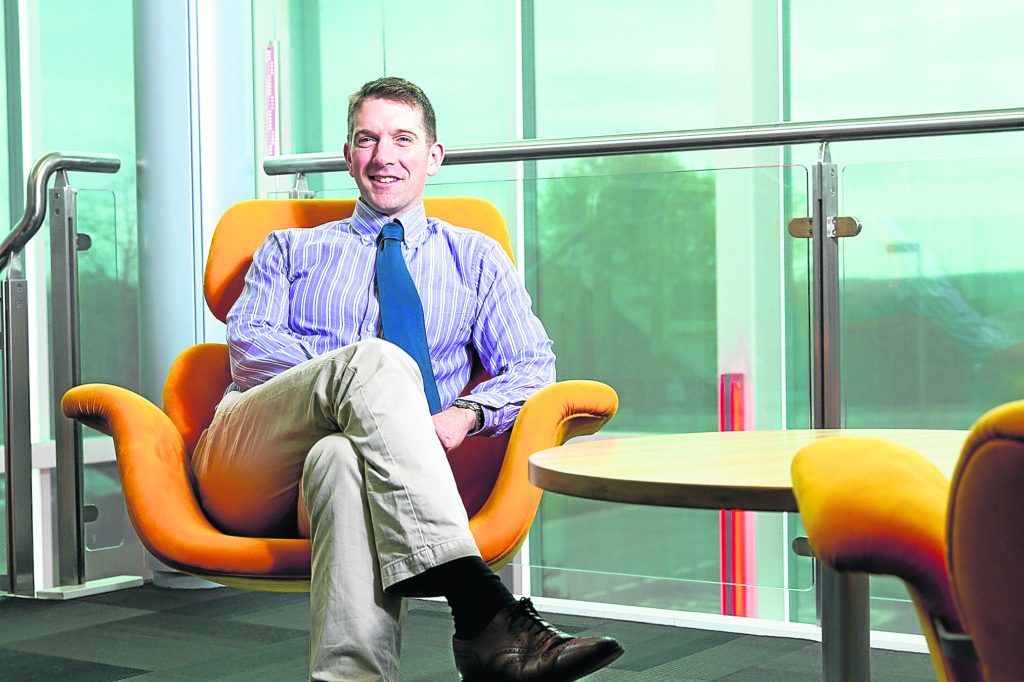
Better seismic data handling will “move the needle” on North Sea oil recovery efforts more than any other digital advance, Chevron’s technology manager has said.
Jonathan Copp said digitalisation will make production and maintenance more efficient, but improved seismic processing and acquisition can help deliver MER UK.
Mr Copp said: “Seismic has been out there a long time in terms of massive data sets and the type of processing we’re doing.
“With better data handling capabilities we’re getting more out of seismic data than ever before because we can start to process all the signal out of it and reduce noise.
“That’s an area where we’re doing very well as an industry.
“Whether operators choose to buy the latest seismic data and use the different processing techniques is a different question. But the prizes are out there for those willing to
push the boundaries.”
The pioneering Fullwave Gamechanger project with the Industry Technology Facilitator and Imperial College London is playing a big role in supporting the drive.
Using the so-called full-wavefield tomography technique, a complete range of acoustic wave data can be picked up from seismic survey recordings, producing radically
enhanced images compared with traditional seismic analysis methods.
The initiative will enable industry to “see new things” and gain “new insights” from legacy data, Mr Copp said.
Digitalisation will have a “big impact” on the oil sector, contributing to a whole spectrum of operations from field development, drilling and production to decommissioning, according to Mr Copp.
He said linking existing datasets presented a “big opportunity” and that Chevron had already set the ball rolling.
Compiling data before meetings start saves time because members from different teams do not have to return to their “silos” to retrieve information.
“We’re trying to link datasets so that in meetings you can pull up an integrated set of records for the same problem and have a talk where people recognise their own data and can have a discussion there and then,” Mr Copp said.
“I can see the upside to that and that’s probably something we’ve been lacking.”
Mr Copp also challenged assertions by certain industry chiefs that the oil and gas sector is adept at collecting data.
“We think we’re brilliant at gathering data but I bet that when we really start to try to build complex analytic models to understand problems or drive efficiency we’re going to find we have got a lot of missing data,” he said.
“We’re going to use what we’ve got but equally we’re going to find stuff we wish we had.”
Well production data is an area where the oil industry is lacking.
Mr Copp said: “Understanding what our wells are producing is a gap for the industry now. We use a lot of allocation factors and have metering that tells us something but in terms of accuracy I think there’s a prize there for better understanding our reservoirs and the plumbing of them.”
But the oil sector is about to take “another big step forward” through the use of tablet devices, which will let companies save some paper.
“Tablets and offshore data networks are almost at the place where we can really start to change a lot of the paper-based practices we have been using all through my career.
“There are some things that have allowed that to happen. The first is that tablets have now got a decent amount of real estate on them.
“Platforms are zoned into different explosive areas. You need to understand if there are explosion risks before you take any equipment into them.
“Tablets with the right explosion rating for working offshore have not existed until now, but we’ve seen two or three of those coming into the market in the last 18 months.
“That’s an enabler because in the digital utopia you don’t have to go and write a permit every time you want to take a tablet out of the accommodation module, so we’re almost there.
“Also we’re seeing coverage for 4G networks offshore so that is a big enabler.”
Recommended for you

